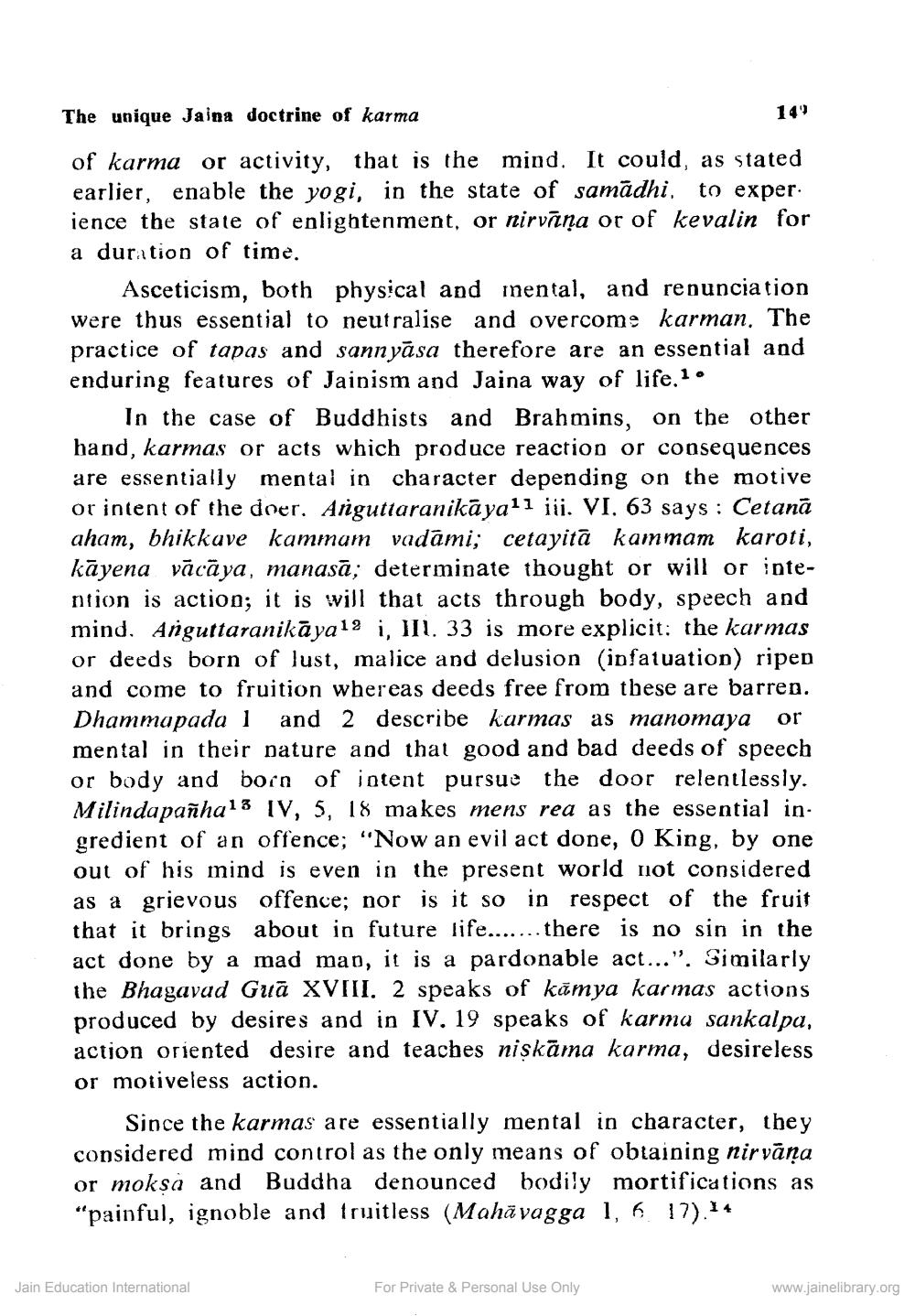________________
The unique Jaina doctrine of karma
149
of karma or activity, that is the mind. It could, as stated earlier, enable the yogi, in the state of samādhi, to exper: ience the state of enlightenment, or nirvīņa or of kevalin for a duration of time.
Asceticism, both physical and inental, and renunciation were thus essential to neutralise and overcome karman. The practice of tapas and sannyāsa therefore are an essential and enduring features of Jainism and Jaina way of life. 1 •
In the case of Buddhists and Brahmins, on the other hand, karmas or acts which produce reaction or consequences are essentially mental in character depending on the motive or intent of the doer. Arguttaranikāyalı iii. VI. 63 says : Cetana aham, bhikkave kammam vadāmi; cetayitā kammam karoti, kāyena vācāya, manasā; determinate thought or will or intention is action; it is will that acts through body, speech and mind. Anguttaranikāyala i, III. 33 is more explicit: the karmas or deeds born of lust, malice and delusion (infatuation) riped and come to fruition whereas deeds free from these are barren. Dhammapada 1 and 2 describe karmas as manomaya or mental in their nature and that good and bad deeds of speech or body and born of intent pursue the door relentlessly. Milinda pañha13 IV, 5, 18 makes mens rea as the essential ingredient of an offence; "Now an evil act done, O King, by one out of his mind is even in the present world not considered as a grievous offence; nor is it so in respect of the fruit that it brings about in future life....... there is no sin in the
ne by a mad mad, it is a pardonable act...". Similarly the Bhagavad Gua XVIII. 2 speaks of kāmya karmas actions produced by desires and in IV. 19 speaks of karma sankalpa, action oriented desire and teaches niskāma karma, desireless or motiveless action.
Since the karmas are essentially mental in character, they considered mind control as the only means of obtaining nirvāņa or mokså and Buddha denounced bodily mortifications as "painful, ignoble and fruitless (Mahä vagga 1, n. 17).14
Jain Education International
For Private & Personal Use Only
www.jainelibrary.org




